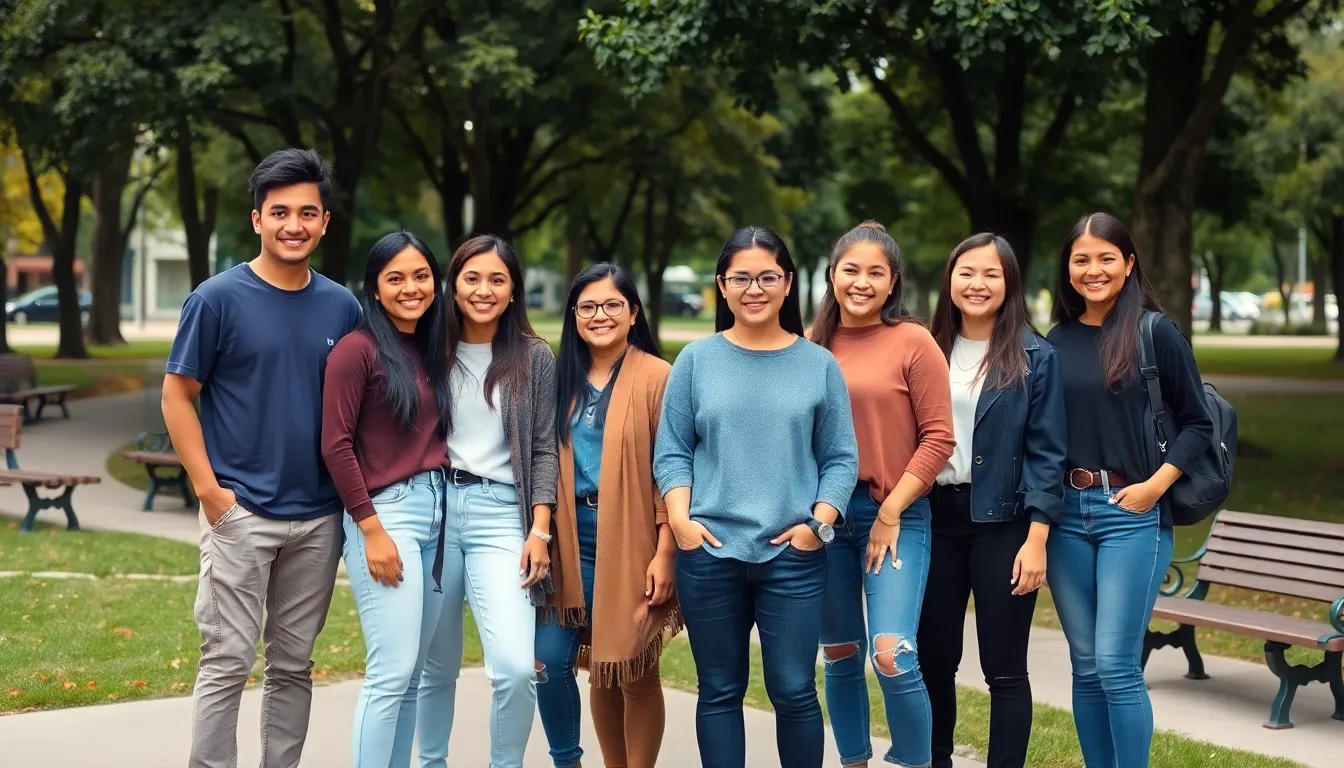DACA recipients are individuals who benefit from the Deferred Action for Childhood Arrivals program, designed to provide temporary relief from deportation for undocumented immigrants brought to the U.S. as children. This program allows them to apply for work permits and grants them a chance to pursue education and contribute to society without the constant fear of being removed from the country they call home.
Since its inception in 2012, DACA has changed the lives of hundreds of thousands of young people, enabling them to build careers and integrate into American communities. Understanding who these recipients are and the challenges they face is crucial in the ongoing conversation about immigration policy and reform in the United States.
Table of Contents
ToggleOverview of DACA
DACA stands for Deferred Action for Childhood Arrivals, a program initiated in June 2012. DACA allows certain undocumented immigrants who entered the United States as children to receive deferred action from deportation. Specifically, this program provides temporary relief for individuals under age 31 as of June 15, 2012, who meet specific criteria.
DACA recipients are eligible for work permits, enabling them to seek employment legally. They can apply for driver’s licenses and pay taxes, contributing to the economy. Additionally, DACA recipients often pursue higher education, benefiting from in-state tuition rates in many states.
As of 2021, there were approximately 600,000 active DACA recipients. Recipients originate from various countries, with Mexico representing the largest group. Despite the program’s benefits, DACA remains at risk due to ongoing legal and political challenges, which create uncertainty for those relying on it. Understanding DACA highlights the broader implications of immigration policy in the United States and the lived experiences of young immigrants.
Definition of DACA Recipient

DACA recipients are undocumented immigrants who arrived in the United States as children and have received protection under the Deferred Action for Childhood Arrivals program, established in 2012. This program allows them to live and work in the U.S. without the fear of deportation.
Eligibility Criteria
DACA recipients must meet specific eligibility requirements, such as:
- Age: Must be under 31 years old as of June 15, 2012.
- Arrival: Must have arrived in the U.S. before age 16.
- Residency: Must have resided continuously in the U.S. since June 15, 2007.
- Education or Military Service: Must have graduated from high school, obtained a GED, or served in the military.
- Criminal Record: Must not have been convicted of a felony or significant misdemeanors, and must not pose a threat to national security or public safety.
Application Process
The application process for DACA involves several key steps:
- Form Submission: Applicants must complete and submit Form I-821D, alongside Form I-765 for work authorization.
- Fees: A fee of $495 is required for the application and work permit.
- Documentation: Applicants must provide documentation verifying their identity, arrival in the U.S., educational status, and residency.
- Biometrics Appointment: After submission, applicants must attend a biometrics appointment for fingerprinting.
- Decision Notification: U.S. Citizenship and Immigration Services (USCIS) will notify applicants of the decision.
Ensuring accurate documentation and adherence to requirements is crucial for a successful application.
Benefits of DACA
DACA recipients enjoy several significant benefits that enhance their lives and promote their contributions to society. Two key areas of benefit include legal protections and work authorization.
Legal Protections
DACA provides crucial legal protections to eligible individuals, shielding them from immediate deportation. This deferred action allows recipients to live and study in the U.S. without the constant fear of removal. DACA recipients can also seek renewal of their status every two years, ensuring continued protection as long as they meet eligibility criteria. The ability to obtain driver’s licenses in many states further increases their mobility and independence, facilitating participation in daily life.
Work Authorization
DACA recipients receive work authorization, enabling them to secure employment legally. This authorization is not only vital for financial stability but also allows recipients to contribute to the U.S. economy. In 2021, an estimated 80% of DACA recipients were employed, with many working in essential sectors such as healthcare, education, and technology. The opportunity to work legally promotes professional growth and personal development, providing recipients with a chance to build careers and support their families.
Challenges Faced by DACA Recipients
DACA recipients face numerous challenges despite the protections the program offers. These challenges significantly impact their daily lives and long-term prospects.
Immigration Uncertainties
Immigration uncertainties remain a primary challenge for DACA recipients. Legal battles and shifting political landscapes create an unstable environment. Courts often question the legality of DACA, leading to delays and potential termination of protections. Recipients experience anxiety about possible changes in policy, which can disrupt their lives and plans. Many feel trapped, fearing deportation if their status is rescinded.
Access to Education
Access to education presents another significant hurdle for DACA recipients. While many states allow in-state tuition rates, financial aid options remain limited. Some recipients cannot qualify for federal aid and scholarships, restricting their ability to pursue higher education. Additionally, institutions may lack awareness or resources to support DACA students effectively. This disparity hinders their academic success and limits career opportunities. Many recipients strive to achieve educational goals despite these barriers.
Future of DACA
The future of DACA remains uncertain as it confronts ongoing legal and political challenges. Legislative developments and the impacts of policy changes shape the landscape for DACA recipients significantly.
Legislative Developments
Legislative activity regarding DACA continues to evolve. Congress has introduced several bills aimed at providing permanent protections for DACA recipients. Notably, proposals like the Dream Act aim to create a pathway to citizenship for eligible individuals. However, bipartisan support has proved elusive, leading to delays in meaningful reform. In recent years, advocates urge lawmakers to prioritize immigration reform to secure long-term stability for DACA recipients. The continual introduction of legislation reflects a persistent commitment among advocates to address the needs of this population.
Impacts of Policy Changes
Policy changes can dramatically impact DACA recipients’ lives. Legal rulings, such as those from the Fifth Circuit Court of Appeals, have challenged the legality of the DACA program, introducing uncertainty and anxiety among recipients. Such implications extend to employment opportunities, educational accessibility, and mental health, which are critical for well-being. Each court decision creates ripples that affect not only current recipients but also potential future applicants. Instability resulting from these shifts necessitates ongoing monitoring of the legal landscape to understand how changes may reshape the experiences of DACA recipients moving forward.
DACA recipients represent a resilient group of individuals who navigate complex challenges while striving for a better future. The program has provided them with crucial protections and opportunities that enhance their contributions to society. However the ongoing legal and political uncertainties surrounding DACA create a precarious environment for these young people.
As discussions about immigration reform continue it’s essential to recognize and support the unique experiences of DACA recipients. Their stories highlight the broader implications of immigration policy and the need for comprehensive solutions that address their aspirations and challenges. Understanding their plight is vital for fostering a more inclusive society that values the contributions of all its members.









